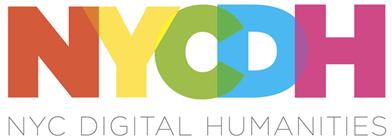<p class=”MsoNormal”>Digital Experiments Meeting #2: Collecting & Storing Epigraphs </p>
<p class=”MsoNormal”> Our next meeting for the Epigraph Project will be on Wednesday, October 16 at 6 PM in Room 105 of 244 Greene St.</p>
<p class=”MsoNormal”> In keeping with our charrette model, we’ve specified a problem for the meeting, which Jon Reeve will lead. Here’s the problem:</p>
<p class=”MsoNormal”> How do we collect and store large numbers of epigraphs in a manner that will enable us to analyze and interpret them in relation to the larger texts and broader historical contexts to which they belong?</p>
<p class=”MsoNormal”> Don’t worry if you think you lack technical expertise. A lot of the work we have to do is conceptual and critical — that is, figuring out how we think about the epigraph and its relationship to a larger text. What is at stake excerpting a textual genre that is itself an excerpt? What needs to be preserved and what doesn’t? Finally, don’t worry if you missed the first meeting. We’re just getting started, and we need all the help we can get.</p>
<p class=”MsoNormal”></p>
<p class=”MsoNormal”> Digital Literary Studies? Framing a Response to (Inter)Disciplinary Change</p>
<p class=”MsoNormal”> Ray Siemens</p>
<p class=”MsoNormal”>Thursday, October 17th, 6:00pm-8:30pm (Room 105, 244 Greene Street)</p>
<p class=”MsoNormal”> Abstract: In the context of trends that are influencing changes in the Humanities and beyond, this talk considers recent developments in the Digital Humanities and Digital Literary Studies with the aim of suggesting elements of their positive engagement.</p>
<p class=”MsoNormal”> Bio: Ray Siemens is Canada Research Chair in Humanities Computing and Distinguished Professor in the Faculty of Humanities at the University of Victoria, in English and Computer Science. He is founding editor of the electronic scholarly journal Early Modern Literary Studies, and his publications include, among others, Blackwell’s Companion to Digital Humanities (with Schreibman and Unsworth), Blackwell’s Companion to Digital Literary Studies (with Schreibman), A Social Edition of the Devonshire MS, and Literary Studies in the Digital Age (MLA, with Price). He directs the Implementing New Knowledge Environments project, the Digital Humanities Summer Institute and the Electronic Textual Cultures Lab, and serves as Vice President of the Canadian Federation of the Humanities and Social Sciences for Research Dissemination, recently serving also as Chair of the international Alliance of Digital Humanities Organisation’s Steering Committee.</p>
<p class=”MsoNormal”></p>
